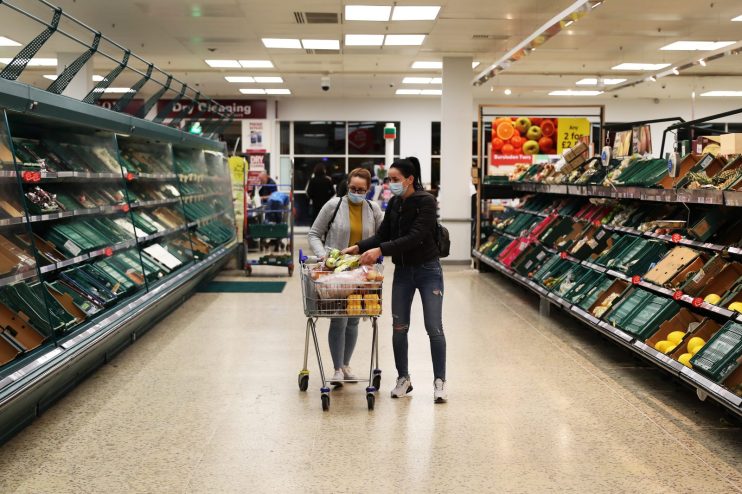Food prices drop for first time in four years due to anti-stockpiling measures in 2020 lockdown

Food prices fell this month for the first time in four years in comparison to last year, when retailers paused discounting to reduce stockpiling at the beginning of the pandemic.
Prices fell 0.6 per cent in April, down from a rise of 0.3 per cent in March, marking the first time food prices have been deflationary since January 2017.
Fresh food prices fell for the fifth consecutive month in April, accelerating to a 1.5 per cent drop from 0.8 per cent in March.
Meanwhile, ambient food inflation slowed to 0.6 per cent in April, compared to growth of 1.7 per cent in the previous month.
Helen Dickinson, chief executive of the British Retail Consortium, said the decline in food prices “was the result of fewer promotions in the comparison period, April 2020, as retailers tried to deter shoppers from stockpiling before and during the first lockdown”.
Overall, shop prices fell 1.3 per cent in April, a slower decline than the 2.4 per cent decrease recorded in March.
Non-food deflation slowed to 1.7 per cent in April, compared to a four per cent drop in March, as shoppers headed back to non-essential stores when lockdown restrictions were open.
Dickinson said: “Non-Food deflation continued, with retailers discounting goods, particularly on last season’s stock as they made way for the latest products ahead of re-opening.
“However, some products, such as furniture saw prices generally rise due to the combination of high demand and disruption to global supply chains.”
However, she warned that the low prices were “unlikely to last” as retailers “will have to battle the cost pressures from Brexit red-tape, rising shipping costs due to international supply issues, as well as increasing global food and oil prices”.
“As these costs filter through, retailers may be left with no option but to pass on some of these costs to consumers,” Dickinson added.
“The Government can help to relieve this pressure by ensuring that the new checks and documentation requirements this autumn avoid adding further friction to the import of goods.”